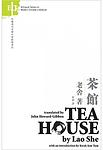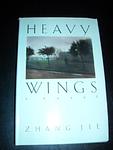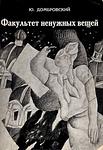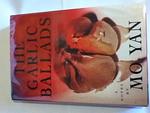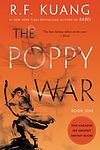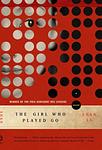The Greatest Russian, Chinese "Historical fiction, Fiction" Books Since 1950
Click to learn how this list is calculated.
This list represents a comprehensive and trusted collection of the greatest books. Developed through a specialized algorithm, it brings together 300 'best of' book lists to form a definitive guide to the world's most acclaimed books. For those interested in how these books are chosen, additional details can be found on the rankings page.
Genres
Historical fiction is a genre of literature that combines fictional stories with real historical events, settings, and characters. These books often take place in a specific time period and are based on research and factual information, but also include imaginative elements to create a compelling narrative. Historical fiction allows readers to experience the past in a unique and engaging way, while also providing insight into the social, cultural, and political issues of the time.
Countries
Date Range
Reading Statistics
Click the button below to see how many of these books you've read!
Download
If you're interested in downloading this list as a CSV file for use in a spreadsheet application, you can easily do so by clicking the button below. Please note that to ensure a manageable file size and faster download, the CSV will include details for only the first 500 books.
Download-
1. Doctor Zhivago by Boris Pasternak
Set against the tumultuous backdrop of the Russian Revolution, the book follows the life of a physician and poet, Yuri Zhivago, as he navigates the political and social upheaval of the early 20th century. Torn between his love for two women, his wife Tonya and his passionate mistress Lara, Zhivago's personal struggles mirror the larger societal changes occurring around him. The novel explores themes of love, war, and the human spirit, offering a poignant and complex portrait of life during a time of revolutionary change.
-
2. Life and Fate by Vasily Grossman
"Life and Fate" is a sweeping epic that explores the human condition during the Siege of Stalingrad in World War II. The novel delves into the lives of a wide range of characters, from soldiers and scientists to children and victims of the Holocaust, providing a stark and unflinching portrayal of the horrors of war, the brutality of totalitarianism, and the resilience of the human spirit. At the same time, it also examines themes of love, loss, and the struggle for freedom and dignity in the face of overwhelming adversity.
-
3. Cancer Ward by Aleksandr Solzhenitsyn
"Cancer Ward" is a poignant novel set in a Soviet cancer hospital in the mid-1950s. It follows the lives and struggles of patients and doctors, exploring their personal histories, relationships, and the political environment of the time. The hospital serves as a metaphor for the oppressive Soviet state, with cancer symbolizing the malignant growth of totalitarianism. The book also explores themes of mortality, the human spirit, and the will to survive.
-
4. Summer in Baden-Baden by Leonid Tsypkin
"Summer in Baden-Baden" is a unique blend of fact and fiction that intertwines the author's own travels to Leningrad with a reimagining of Fyodor Dostoevsky's summer in Baden-Baden, Germany. The narrative shifts between the two journeys, exploring themes of obsession, identity, and the power of literature. The author's fascination with Dostoevsky serves as a lens through which he examines his own life and experiences as a Jew in Soviet Russia, while also providing a fresh perspective on the famous Russian author's life and works.
-
5. Balzac and the Little Chinese Seamstress by Dai Sijie
This novel tells the story of two teenage boys sent to a remote mountain village for re-education during China's Cultural Revolution. There, they meet a local tailor's daughter, who becomes their friend and the object of their shared affection. The boys discover a hidden suitcase filled with forbidden Western classics in Chinese translation, and their lives are forever changed. The books not only awaken their passion for literature, but also allow them to educate the Seamstress, ultimately leading to a heartbreaking love triangle and a tale of personal freedom against the odds.
-
6. August 1914 by Aleksandr Solzhenitsyn
"August 1914" is a historical novel set during the early days of World War I, focusing on the disastrous Battle of Tannenberg on the Eastern Front. The book provides a detailed portrayal of the Russian army's defeat, largely due to incompetent leadership and lack of communication. The narrative also delves into the lives of the soldiers and civilians involved, offering a broad examination of Russian society and the impending revolution.
-
7. Teahouse by Lao She
"Teahouse" is a historical drama that explores 50 years of Chinese history (1898-1948) through the microcosm of a Beijing teahouse. The narrative follows the lives of the teahouse owner and his customers, reflecting the social changes, political turmoil, and cultural shifts of the time. The story provides a deep insight into the Chinese society, its traditions, and the impact of Western influence. It also highlights the struggle of the common people amidst corruption, oppression, and the collapse of traditional values.
-
8. Heavy Wings by Zhang Jie
"Heavy Wings" is a novel that explores the societal changes in China during the late 20th century. It follows the story of a group of innovative engineers striving to design and build China's first large-scale commercial aircraft. Despite facing numerous challenges such as lack of resources, political interference, and personal struggles, they remain committed to their mission, symbolizing the spirit of perseverance and innovation. The story is a reflection of China's journey towards modernization and technological advancement.
-
9. Half of Man is Woman by Zhang Xianliang
This novel provides a deeply personal account of the author's experiences during China's Cultural Revolution and his subsequent imprisonment in a labor camp. The protagonist struggles with the harsh realities of his imprisonment, including starvation and physical abuse, while also grappling with his own identity and the societal expectations of masculinity. His release and subsequent marriage only further complicate his quest for self-understanding, as he navigates the challenges of reintegrating into society and maintaining a relationship with a woman who has her own traumatic past.
-
10. Sofia Petrovna by Lydia Chukovskaya
The book is a poignant narrative set during the Stalinist purges of the 1930s in the Soviet Union. It follows the story of a loyal and hardworking widow who is confronted with the brutal reality of the regime when her beloved son is arrested on false charges. As she navigates the Kafkaesque bureaucracy to seek justice for her son, her faith in the government and its policies is shattered. The novel offers a harrowing look at the terror of the Great Purge and the impact of political oppression on the lives of ordinary citizens, as the protagonist grapples with the disintegration of her world and the moral dilemmas posed by a society steeped in fear and denunciations.
-
11. The Burn: A Novel in Three Books : (late Sixties--early Seventies) by Vassily Aksyonov
"The Burn: A Novel in Three Books : (late Sixties--early Seventies)" is a historical novel that explores the cultural and political landscape of the Soviet Union during the late 1960s and early 1970s. The book follows a group of intellectuals, artists, and dissidents who are striving to preserve their individuality and freedom in a society that is increasingly oppressive and conformist. The narrative is punctuated by surreal and fantastical elements, reflecting the characters' struggle to maintain their sanity and dignity in a world that seems to be spiraling into madness.
-
12. The Faculty of Useless Knowledge by Yuri Dombrovsky
"The Faculty of Useless Knowledge" delves into the life of a historian caught in the oppressive atmosphere of Stalinist Russia. The narrative explores the intellectual and emotional turmoil of the protagonist, who is ensnared in the brutal machinery of the Soviet state's ideological and bureaucratic control. Through his experiences and reflections, the book examines themes of memory, history, and the struggle to maintain intellectual integrity in a repressive society. The protagonist's journey is a poignant commentary on the value of knowledge and the human spirit's resilience against totalitarian forces.
-
13. Farewell To Matyora by Valentin Rasputin
The book is a poignant exploration of the tension between progress and tradition, set in a small Siberian village that is doomed to be submerged by the construction of a hydroelectric dam. As the government mandates the relocation of the village's inhabitants, the narrative delves into the lives of the villagers who are grappling with the loss of their ancestral home and way of life. The story is a meditation on the cost of modernization, the deep connection between people and their land, and the inevitable passing of time that brings change, often at the expense of cultural heritage and personal identity. Through the villagers' resistance and sorrow, the novel examines themes of environmental impact, the clash of ideologies, and the resilience of the human spirit in the face of displacement.
-
14. Spring Moon by Betty Bao Lord
Set against the backdrop of a changing China from the late Qing Dynasty through the Cultural Revolution, the novel follows the life of Spring Moon, a young noblewoman of the Soong family. As she navigates the complexities of tradition and modernity, Spring Moon experiences personal tragedies and triumphs while witnessing the seismic shifts in Chinese society. Her story is one of love, loss, and resilience, reflecting the broader historical forces at play that reshape her country and her family's destiny. Through her eyes, readers experience the clash of old values with new ways, and the struggle to find harmony amidst chaos.
-
15. The Garlic Ballads: A Novel by Yan Mo
The novel is a harsh critique of the Chinese government's agricultural policy. Set in 1980s China, it tells the story of the farmers of Paradise County, who are encouraged by the government to plant garlic, only to find that the government can't or won't buy their crops, leading to violent protests. The narrative is centered around three characters - Gao Yang, who has been arrested for leading the protests; his blind father, Gao Ma, who continues to struggle with the garlic harvest; and Jinju, the woman both men love. The book is a powerful exploration of corruption, love, the human spirit, and the struggle for justice in an oppressive regime.
-
16. Medea And Her Children by Lyudmila Ulitskaya
"Medea And Her Children" by Lyudmila Ulitskaya is a powerful and emotionally charged novel that delves into the complex relationships between a mother and her children. Set in Soviet Russia, the story follows the lives of three generations of women as they navigate the challenges of love, sacrifice, and the oppressive political climate. Through vivid and compelling storytelling, Ulitskaya explores the universal themes of family, loyalty, and the enduring strength of a mother's love.
-
17. Snow Flower and the Secret Fan by Lisa See
Set in 19th century China, the novel centers around the lifelong friendship of Lily and Snow Flower. Despite their different social classes, the two communicate through a secret language known as "nu shu" written on a fan. The story explores the rigid societal norms of the time, particularly the practice of foot binding and arranged marriages. As they navigate through the hardships of their lives, their friendship is tested, leading to a devastating betrayal that impacts their relationship.
-
18. War Trash by Ha Jin
The novel is a fictional memoir of a Chinese soldier who is captured during the Korean War and spends several years in American POW camps. He struggles to survive in the brutal conditions and navigate the political rivalries among the prisoners, while holding onto the hope of repatriation and the fear of being labeled a traitor by his own country. The narrative explores themes of loyalty, survival, and the human cost of war.
-
19. The Poppy War by R. F. Kuang
The book is a fantasy novel set in a world inspired by China's 20th century history. The protagonist, a war orphan, defies societal expectations by acing the empire-wide examination and earning a place at the prestigious military academy. However, her triumph is short-lived as she becomes embroiled in a violent conflict, which forces her to delve into the depths of her own magical abilities, inspired by shamanism. The story intertwines the brutal realities of war, mythology, and the exploration of power in a deeply divided society.
-
20. Klotsvog by Margarita Khemlin
"Klotsvog" is a poignant and introspective novel that follows the life of Maya Abramovna Klotsvog, a Jewish woman living in Soviet Russia during the 20th century. Through Maya's perspective, the book explores themes of identity, love, and the struggles faced by Jews in a society plagued by anti-Semitism. With a blend of humor and tragedy, the story delves into Maya's personal relationships, her experiences as a mother and wife, and her resilience in the face of adversity. Ultimately, "Klotsvog" is a profound exploration of one woman's journey through life and her unwavering spirit in the midst of societal challenges.
-
21. The Girl Who Played Go by Shan Sa
Set in the 1930s during the Japanese occupation of Manchuria, the novel intertwines the lives of a young Chinese girl, a master of the ancient board game Go, and a Japanese soldier. As the girl seeks refuge from the turmoil of war in the strategy and beauty of Go, she encounters the soldier in the public square where they silently engage in a series of games. The board becomes a silent battleground reflecting their personal and political struggles. Their growing connection and the insights they gain into each other's cultures and vulnerabilities lead to a poignant and tragic conclusion, underscoring the senselessness of war and the transcendent power of human connection and empathy.
-
22. Zuleikha by Guzel Yakhina
"Zuleikha" is a captivating historical novel set in 1930s Soviet Union, following the life of Zuleikha, a Tatar woman who is forcefully taken from her home and exiled to Siberia. As she struggles to adapt to the harsh conditions of the remote village, Zuleikha finds solace in her resilience and the unexpected connections she forms with her fellow exiles. Through her journey of survival, love, and self-discovery, Zuleikha's story beautifully explores themes of identity, freedom, and the indomitable human spirit.
-
23. Memories Of Peking by Lin Hai-yin
"Memories of Peking" is a poignant memoir that captures the essence of childhood in 1920s Beijing through the eyes of a young girl. The narrative weaves together a tapestry of family life, traditional customs, and the everyday struggles and joys experienced within the hutongs, or narrow lanes, of the city. Through vivid anecdotes and emotional depth, the book offers a nostalgic look at a bygone era, highlighting the innocence of youth amidst the socio-political changes of the time. The author's lyrical prose and rich descriptions bring to life the cultural landscape of early 20th-century China, making it a touching and evocative read.
Reading Statistics
Click the button below to see how many of these books you've read!
Download
If you're interested in downloading this list as a CSV file for use in a spreadsheet application, you can easily do so by clicking the button below. Please note that to ensure a manageable file size and faster download, the CSV will include details for only the first 500 books.
Download





